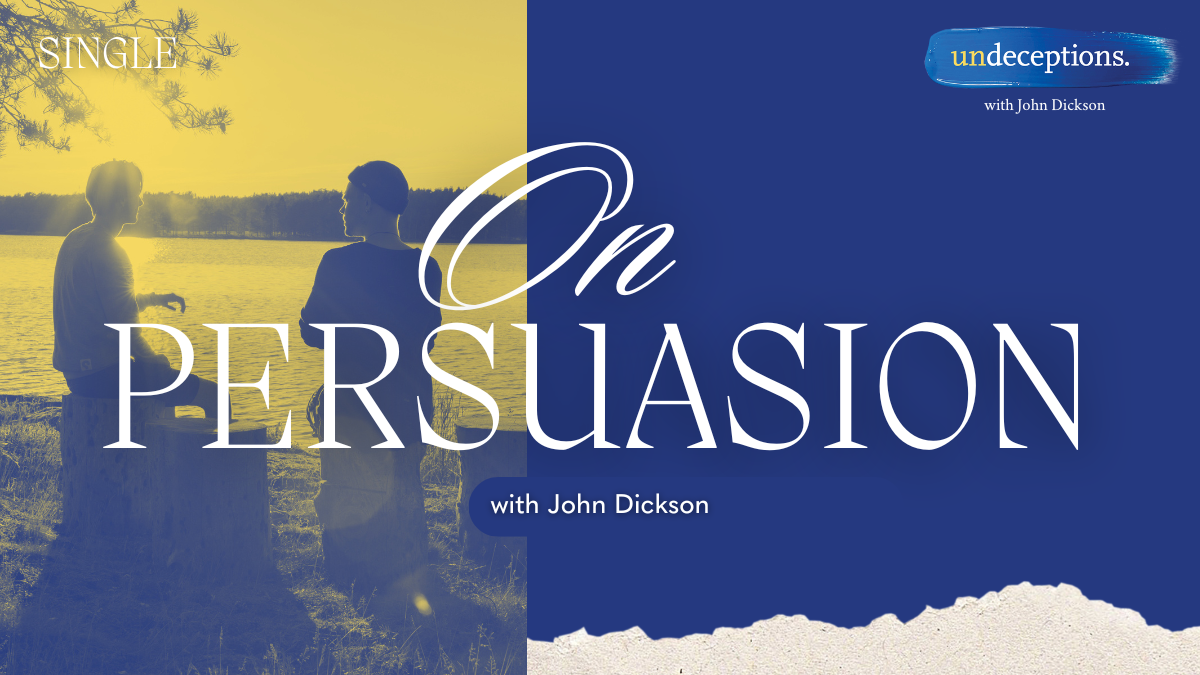By Wessel Venter
In the mid-to-late 2nd century, a Greek philosopher named Celsus wrote a book called The True Word. In it, Celsus took a systematic approach in attacking Christianity, attempting to show the foolishness of the faith. He drew from Jewish sources to discredit the origins of Jesus, tried to explain his miracles away as mere stage magic, and implored the Christians—being persecuted at that time—to conform to the Roman state religion of emperor worship.
This was one of the first literary works to be critical of Christianity in such a way, challenging it on an intellectual level. It was the The God Delusion (written by famed atheist Richard Dawkins) of its day.
We no longer have a surviving copy of The True Word. However, over half a century later, Origen, an early church father, wrote a response to The True Word. In his response, Contra Celsum, Origen carefully took Celsus’s arguments against Christianity and worked through them, answering each of his objections. He was careful and methodical—today scholars believe that we have about 80 per cent of The True Word preserved as quotations or references in Contra Celsum, because of the care which Origen took in referencing Celsus in order to refute him accurately.
For two thousand years, Christians have had to defend their faith on an intellectual level. The Bible alludes to the earliest Jewish polemic for Jesus’s empty grave after his supposed resurrection: that the disciples stole the corpse (Matthew 28:12–15). However, after the martyrdom of almost all of Jesus’s disciples, this explanation is highly unlikely (liars make poor martyrs). Many other charges were brought against Jesus and his disciples in the following centuries and millennia by all kinds of people. Throughout this time, people stepped forward to defend Christianity with faithful reason, all of which we can still learn from today.
It is tragic that so few people are aware of the wealth of historic Christian literature which we have available. Too many people think that Christian writings start and end with the New Testament. They are not aware of the writings of the early church fathers, of the works of Augustine, the philosophies of Thomas Aquinas, the books of the reformers, and many more. People quickly recognise David Hume’s An Enquiry concerning Human Understanding as the ultimate argument against the belief in miracles, but are not aware of George Campbell’s rebuttal, A Dissertation on Miracles, written fourteen years afterwards.
The Bible itself challenges its readers to be thinking. Paul told the earliest Christians what was at stake and what the cost would be of being wrong in their belief in Christ (1 Corinthians 15:12—34). Their faith was strengthened by the proofs provided by God himself. Each year the Jews were to remind themselves of the miracles which God performed—for their sake—in Egypt (Exodus 12:26–27). And during Jesus’s earthly ministry, his miracles served as proof that He was God incarnate. Perhaps no miracle (apart from the Resurrection) made a bigger impact on the disciples than the feeding of the five thousand (Matthew 14:13–21, Mark 6:31–44, Luke 9:10–17, John 6:5–15): a miracle on such a massive scale and before so many people that it could not be denied. After his resurrection, Jesus appeared to the doubting disciple Thomas—in the presence of witnesses—and offered him proof of his physical resurrection (John 20:19–31).
In the preface to Contra Celsum, Origen laments that he was asked to respond to Celsus:
When false witnesses testified against our Lord and Saviour Jesus Christ, He remained silent; and when unfounded charges were brought against Him, He returned no answer, believing that His whole life and conduct among the Jews were a better refutation than any answer to the false testimony, or than any formal defence against the accusations. And I know not, my pious Ambrosius, why you wished me to write a reply to the false charges brought by Celsus against the Christians, and to his accusations directed against the faith of the Churches in his treatise; as if the facts themselves did not furnish a manifest refutation, and the doctrine a better answer than any writing, seeing it both disposes of the false statements, and does not leave to the accusations any credibility or validity.
Origen believed that the most powerful witness to the truth of the gospel was that of lives transformed by it to be like that of Jesus. No amount of false accusations could detract from that. Yet in writing Contra Celsum, he proved that his belief in knowing the truth was not ungrounded: he could meet Celsus at an intellectual level. And not only can Christians still do so today, but we can still learn from these old writings.
Wessel Venter blogs at siyach.org.














































